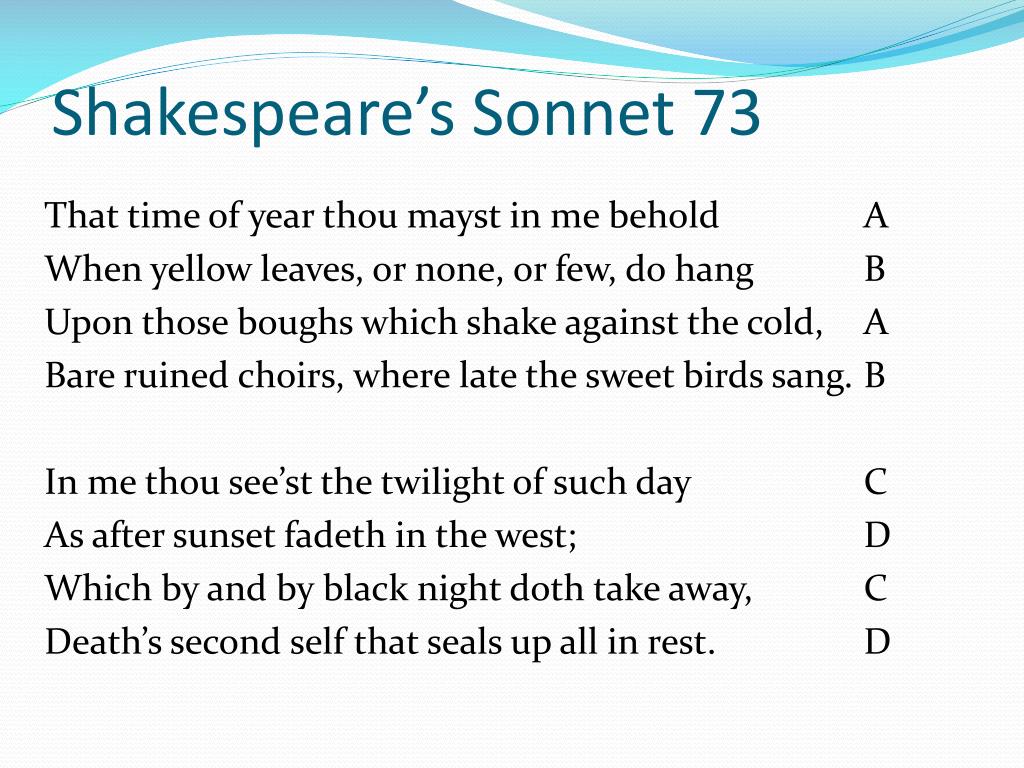

The sonnet’s speaker does not fit with a man in his thirties and so ripe with creative powers. Shakespeare, at that time, had not yet written most of his strongest plays.

The speaker in the poem refers to himself as in the late autumn/ early winter of life, in the twilight of his days, and as on his deathbed. The sonnets have been dated in the 1590’s when Shakespeare would have been at most in his mid-thirties. Interpreters of the sonnets identify the speaker as Shakespeare himself, but this is difficult to maintain with Sonnet 73. It would be difficult to perform the poem without attending to the following rhetorical issues: To love that well which thou must leave ere long.īoth Camille Paglia and Helen Vendler, bold readers who think freely about this sonnet, miss the poem’s emotional force and drama because they by-pass the rhetorical issues that a performance reading would require. This thou perceiv’st which makes thy love more strong, In me thou seee’st the glowing of such fire,Ĭonsum’d with that which it was nourish’d by. Which by and by black night doth take away,ĭeath ‘s second self, that seals up all in rest. In me thou see’st the twilight of such day Upon those boughs which shake against the cold,īare ruin’d choirs, where late the sweet birds sang. When yellow leaves, or none, or few, do hang That time of year thou may’st in me behold Without the voice, we miss the experience of the poem entirely as I will show with one of our most frequently anthologized poems, Shakespeare’s Sonnet 73. We think even of lyric poetry as a verbal puzzle, a weaving of figures and allusions, confined within a closed cell of formal rules, and not as a theatrical script or musical score to be performed. Hearing students read poetry aloud is discouraging, and professors reading is often not much better. The loss of voice in poetry is disabling and leads to fundamental misreadings.

XVII), no one recognizes him, not even the nurse who raised him but Argos, his dog, knows him by the sound of his voice. When Odysseus returns to Ithaca after twenty-years (Odyssey, Bk.


 0 kommentar(er)
0 kommentar(er)
